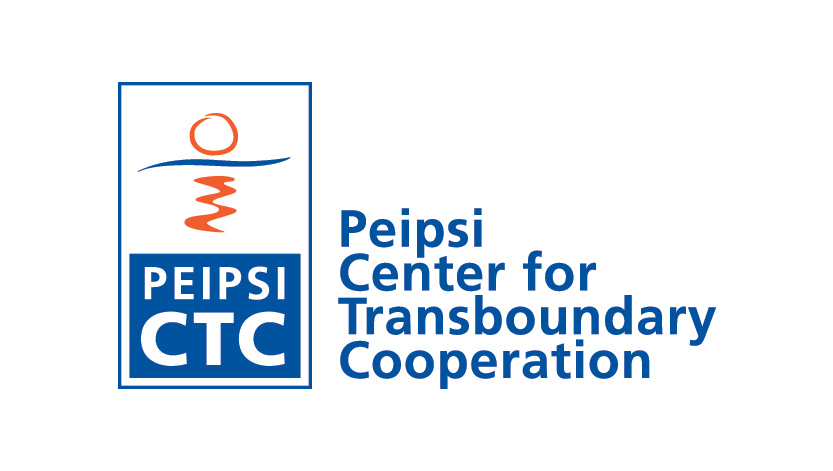“Economic and environmental cooperation in the Estonian – Russian border area
in a wider context of the cooperation in the Baltic Sea Region”
14. December 2007, Tartu, Estonia
Objectives of the round table
The round table will bring
together experts and stakeholders from the Baltic Sea Area with
experience of work in cross-border environmental protection and
sustainable development and projects in the region.
The discussion
will focus on the regional sustainable development s in the
Estonian-Russian border area in the wider context of the cooperation in
Eastern Baltic Sea region. The round table participants will discuss the
lessons learned of the implemented cooperative actions in the
Estonian-Russian border area and elaborate proposals for the measures to
be taken in the future to promote sustainable development of this
region.
Languages: Estonian, Russian and English (simultaneous and/or consecutive interpretation)
Roundtable was supported by Konrad Adenauer Fund and EU INTERREG IIIA Programme
Organizers:
Peipsi Center for Transboundary Cooperation, Dr. Gulnara Roll, Senior Expert, gulnara@ctc.ee
Forum Balticum, Dr. Eero Mikenberg, Director, eeromikenberg@aol.com
Chudskoe Project (Pskov), Olga Vassilenko, Chairperson, olgavassilenko@yahoo.com
AGENDA
09.30 – 09.35 Introduction by organizers
Gulnara Roll, Peipsi Center for Transboundary Cooperation, Eero Mikenberg, Forum Balticum
09.35 – 09.50 Welcome and introduction
Andreas M. Klein, Head of the Baltic office, Director of the Konrad Adenauer Foundation
09.50 -10.10 Development challenges in Estonian peripheral border areas –
Vallo Reimaa, Minister for Regional Affaires of Estonia
10.10 – 10.30 Development challenges in North-Western Russia peripheral border areas - example of Pskov region
Valentin Ivanov – Pskov Municipality, Deputy Mayor
10.30 – 10.50 New phase of EU – Russia Program of Cooperation in 2007 –2013
Vladimir Skorohodov, Head of Regional bureau of EU Projects Support in St.Petersburg
10.50
- 11.10 Neighbourhood and Partnership Instrument (ENPI) structural
period 2007 – 2013. Baltic Sea Region and Estonian – Russian cooperation
Margarita Jefimova, Chief Specialist, European Territorial Cooperation Bureau, Estonian Ministry of the Interior
11.10 – 11.25 Questions and comments
11.25 – 11.45 Coffee break
11.45 – 13.30 Working groups (parallel group discussions):
Short interventions by the participants (5 - 10 minutes) to answer three questions:
- What worked well in their cooperative projects?
- What are their proposals for specific future activities in the Estonian-Russian border area?
- What topics need to be addressed and who, which stakeholders need to be involved?
Working group 1- Environment – water management and sustainable energy
Main trends and challenges in regions/ municipalities development
Moderator: Gulnara Roll
• Jüri Morozov, Saare municipality - Water and environmental concerns of Lake Peipsi municipalities in Estonia
• Marina Kazmina, Pskov region administration - Water management and other environmental issues
• Ludmila Peterson, Gdov rayon municipality – Reconstruction of Gdov treatment works and main directions of Gdov municipality development
• Sergey Poselyugin, Pskov Gorvodokanal, Reconstruction of treatment works in 2005-2006 in Pskov
•
Ago Jaani, Ministry of the Environment, Water Department, Adviser and
Secretary of the Estonian-Russian joint Commission on Transboundary
Waters
• Tauno Laasik, Carbonari Ltd - Use of local energy resources – possibilities of the use of reeds biomass
Working group 2. Economy - ecotourism, water transport, municipal development
Moderators: Olga Vassilenko, Eero Mikenberg
Main trends and challenges in tourism development in Estonian-Russian border area
• Sergey Damberg, Pskov region administration, Joint key tourism products of Estonia and Russia
• Mart Reimann, Reimann Retked Ltd, University of Tallinn
• Marika Kool, Foundation South-Estonian Tourism – South-Estonian Tourism Products
• Julia Zimchuk, Pechory rayon municipality, Pechory experience of Estonian-Russian border project and expectations from new period
13.30 – 14.30 Lunch
14.30 – 16.00 II session
• Reports from the working groups
Comments
and feedback for the working groups by Krista Kampus and Margarita
Jefimova (Estonia ) and Vladimir Skorokhodov (Russia)
• Border inspection points in EU Eastern border – Estonian case study, preliminary results of research
Marje Pihlak, EuroCollege, University of Tartu
• Role of the Euroregions in steering the cross-border cooperation
Katri-Liis Lepik, Tallinn – Helsinki Euroregio
• Conclusion
16.00 – 17.00 Concluding reception and adjourn
